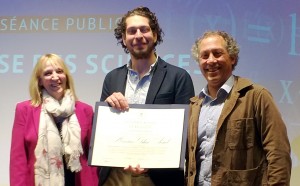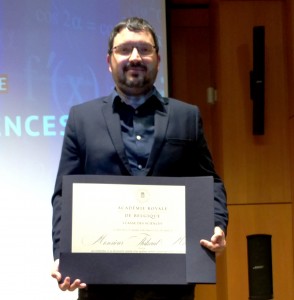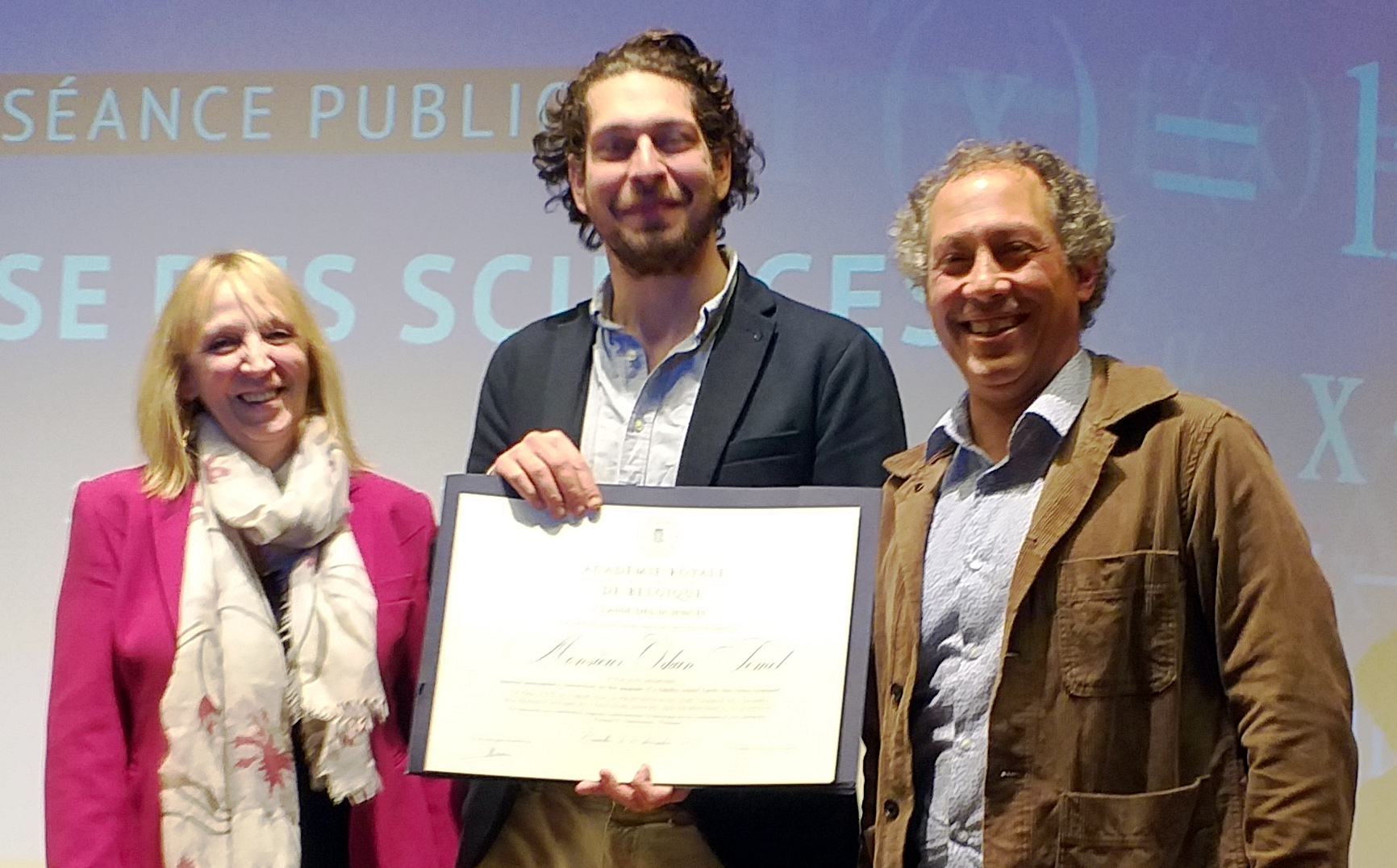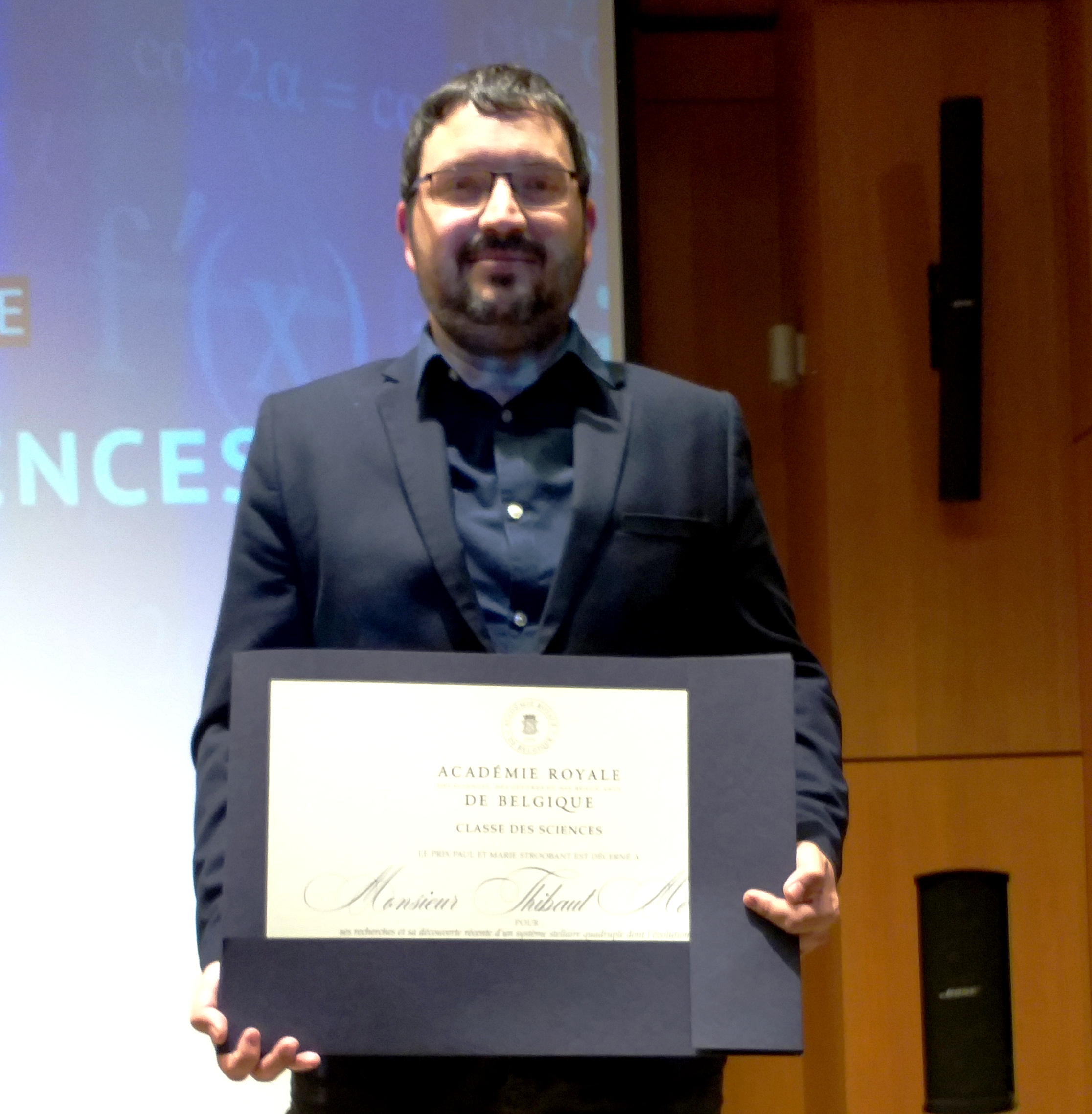Two of our scientists honoured by the Royal Academy of Belgium
On Saturday 16 December 2023, the Royal Academy of Science, Letters and Fine Arts of Belgium awarded two of its prizes to Dr Orkun Temel and Dr Thibault Merle, two scientists working at the Royal Observatory of Belgium.

Orkun Temel (centre) receiving his prize from the Royal Academy with Véronique Dehant (left) and Özgür Karatekin (right).
Orkun Temel, under FWO contract, has won the 2023 annual Academy Competition – Group II – Astronomy-Physics by answering their request for ‘an original contribution, experimental or theoretical, on exoplanets and their habitability.’ In his manuscript entitled ‘Intense atmospheric convection on the dayside of a tidally locked Earth-like rocky exoplanet’, Orkun Temel demonstrates the formation of massive convective cells in the lowermost part of the troposphere, which has implications for surface-atmosphere exchange processes. These convective cells, approximately ten times larger than those observed on Earth and Mars, can initiate dust storms similar to those seen on Mars and significantly impact the vertical transport of water. This effect can lead to the loss of water initially present on the exoplanet’s surface, with obvious consequences for its habitability.

Thibault Merle receiving his Paul et Marie Stroobant 2023 Prize from the Académie royale de Belgique.
Thibault Merle, under FED-tWIN contract, has been awarded the 2023 Paul and Marie Stroobant Prize for his discovery, published in the journal Nature Astronomy in 2022, of a quadruple star system whose future evolution could give rise to a supernova. Thibault Merle has shown that the outer binary system gravitationally disturbs the orbits of the inner binary system, making them more elliptical. His advanced simulations of the future evolution of this system show that such dynamics can lead to one or more collisions and mergers producing ‘dead’ evolved stars (white dwarfs). Following mass transfers or mergers, these white dwarfs can produce a thermonuclear explosion known as a supernova.
We congratulate Orkun and Thibault on their excellent work and their prizes.
The winners and 2023 prizes of the Royal Academy of Belgium: https://academieroyale.be/fr/actualites-detail/messages/classe-sciences-laureats-prix-decernes-2023/
About the FWO and the FED-tWIN programme
The Research Foundation – Flanders (FWO) stimulates and financially supports scientific research in Flanders. With the financial resources they receive, mainly from the Flemish Government, they subsidise fellowships and research projects, infrastructure, travel grants and international scientific cooperation.
The FED-tWIN programme is a federal research programme to support sustainable cooperation between the ten Federal Scientific Institutes (FSI) which fall under Belgian Science Policy (BELSPO) and the eleven Belgian universities. To this end, research profiles are jointly elaborated by a FSI and a university, to be implemented by a postdoctoral researcher who is employed part-time at the FSI and part-time at the university.


